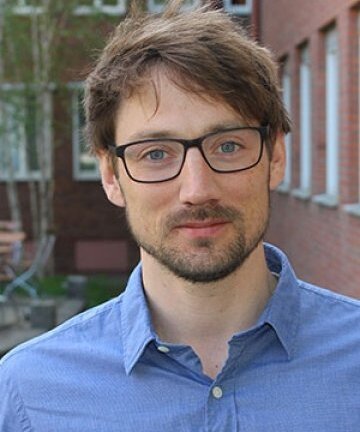The European Research Council (ERC) has announced this year's recipients of Starting Grants for young scientists and scholars across Europe. Six project applications submitted by researchers from Karolinska Institutet have secured grants totalling 9.8 million Euro - an important recognition for KI.
The European Research Council (ERC) announced on 5th September 2024 that it would allocate EUR 780 million in Starting Grants.
A total of 3,474 applications were evaluated by peer review panels composed of internationally recognised researchers. Of these, 14.2 per cent were selected for funding.
Six of the selected projects in the very tough competition are run by researchers at Karolinska Institutet.
Projects at KI awarded ERC Starting Grants

Principal investigator: Elif Eroglu, research group leader at the Department of Cell and Molecular Biology (CMB).
Project title: "Tightly Controlled - Tight Junctions and Tissue Mechanics as Sensors and Executers of Heart Regeneration"
Project description: Restoring the shape and function of a damaged organ without causing a tumorous overgrowth is one of the most desirable goals of regenerative medicine. While much effort has been made to understand what initiates regeneration, less is known about why and how the regeneration comes to an end.
Tightly Controlled aims to gain a better understanding of this process by taking a closer look at Iberian-ribbed newts, a type of amphibian capable of regenerating its heart after an injury.
The project will take an interdisciplinary approach to gain a holistic understanding of regeneration by integrating molecular, cellular, mechanical and functional parameters.
The researchers will use several techniques, among them deep tissue imaging and echocardiography to understand whether the cells have a way of sensing when the heart function is recovered to terminate their regenerative programs. Chemical and mechanical perturbations will be done to challenge the system.
The goal is to enhance the regenerative potential of the human heart as well as to discover mechanisms that prevent uncontrolled growth during this process.

Principal investigator: Leo Hanke, assistant professor at the Department of Medicine, Solna.
Project title: "VaxVision: Structure and Function-based Design of Vaccine Antigens and Antiviral Immunotherapies"
Project description: This project aims to improve vaccines by leveraging the unused potential of viral glycoprotein presentation. Vaccines are critical in preventing viral diseases, and recent advances in how vaccines are made and delivered have made them more effective and widely available.
Viral glycoproteins, which help viruses enter host cells, are the main targets of the immune system and therefore the key component of viral vaccines. However, for many viruses there is a lack of fundamental biological insights in how to easily turn these glycoproteins into highly effective vaccine components.
The project will provide an innovative workflow for systematically uncovering important details that can lead to improvements in vaccines, not just against viruses but potentially other pathogens as well.
Libraries of small specific inhibitors will be used, including camelid nanobodies and computationally de novo designed proteins to study the structure and function of highly pathogenic viruses. The goal is to use these insights to create better vaccine components.

Principal investigator: Alastair Kerr, group leader at the Department of Medicine, Huddinge.
Project title: "Understanding how Long Non-Coding RNAs adapt the adipocyte for specialised LIPID storage and breakdown" (LNC-LIPID)
Project description: Energy is stored in adipocytes (fat cells) as a large lipid droplet. The adipocyte has a remarkable capacity to expand or breakdown this lipid droplet, buffering and releasing energy to the organism as required.
This involves a tight, coordinated organisation of signalling pathways, enzymes and cofactors around the lipid droplet for metabolic homeostasis. In cardiometabolic disease, the regulation of these processes breaks down, leading to uncontrolled release of fatty acids into the circulation and ultimately type-2 diabetes.
Recently, many of the proteins involved in lipid droplet metabolism have been found to interact with RNA, a nucleic acid present throughout all cells. The functional consequence of this interaction is unknown.
This project will examine a certain type of RNA, termed long non-coding RNAs (lncRNAs), to assess if and how they organise adipocyte metabolic complexes, uncovering a novel component of lipid droplet biology.
These insights will provide understanding for how lncRNAs enable cells to perform specialised functions, and how changes in expression contribute to the dysfunction that can be observed in obesity and cardiometabolic disease.

Principal investigator: Donghao Lu, docent and research group leader at the Institute of Environmental Medicine (IMM).
Project title: "MoodMap: Unravelling the Molecular Signatures of Reproductive Mood Disorders: a Multi-Omics Approach Project"
Project description: Reproductive mood disorders (RMDs), including premenstrual disorder and postpartum depression, have a significant impact on women and their families. It also contributes to the well-known gender gap in mental health.
However, effectively diagnosing and treating RMDs remains an on-going challenge. These conditions are closely tied to hormonal changes during menstruation and childbirth, indicating a shared susceptibility. However, the precise mechanisms that take place are not yet fully understood.
MoodMAP will leverage three Nordic population-based cohorts and adopt an innovative approach by studying both premenstrual disorder and postpartum depression together, in order to uncover the biological basis of female vulnerability to mood disorders.
The aim is to understand the psychiatric susceptibility associated with sex hormones. This opens the possibility to drive transformative changes of diagnosis, prevention and treatment strategies for RMDs, and ultimately contribute to the reduction of the gender gap in mental health.

Principal investigator: William A. Nyberg, assistant professor at the Department of Medicine, Huddinge.
Project title: "Improving CAR-T cell therapies through AAV-mediated genetic engineering"
Project description: T cells expressing chimeric antigen receptors (CAR) have transformed the use of cell therapies against some hematological cancers. However, developing CAR-T cell therapies is mainly autologous, which means that the cells need to be extracted from the individual's own tissues.
This makes the process not only expensive but also limits accessibility. Furthermore, CAR-T cell therapies have only shown partial success on solid tumour cancers, often due to T cell dysfunction or intra-tumoural immune suppression.
This project will develop new strategies to generate gene targeted CAR-T cells in vivo. It will optimise the delivery of adeno-associated virus (AAV) in immunocompetent mouse models and combine this with the gene-editing technology Cas9 of T cells in vivo.
The overall goal is to overcome the current limitations of CAR-T cell therapies by developing ground-breaking strategies to engineer gene targeted CAR-T cells in vivo and increase their effectiveness in solid tumours.

Principal investigator: Charlotte Thålin, associate professor at the Department of Clinical Sciences, Danderyd Hospital.
Project title: "D-MAP: Dissecting the Functional Role of Mucosal IgA Clonal and Glycoprofiles for Effective Humoral Mucosal Protection"
Project description: The development of mucosal vaccines and recombinant IgA antibodies is challenging due to a lack of effective models to mimic. While IgA antibodies in the respiratory system are very important for protection, most research has focused on IgG antibodies in the blood.
This problem, along with the lack of effective ways to stop respiratory infections, puts vulnerable people at risk and can lead to vaccine resistant viruses.
This project aims to better understand how IgA works to protect us and to create safe and effective IgA antibodies. It will use a unique global human nasal secretion biobank and advanced scientific tools to understand these antibodies at a deeper level.
The goal is to create molecular-level blueprints for making protective IgA antibodies, which will be an important step in preventing mucosal infections.
About ERC Starting Grants
ERC Starting Grants provide support for promising young researchers at the beginning of their independent research career. The programme is open to researchers of any nationality with 2-7 years of experience since completion of their PhD, a scientific track record showing great promise and an excellent research proposal.






